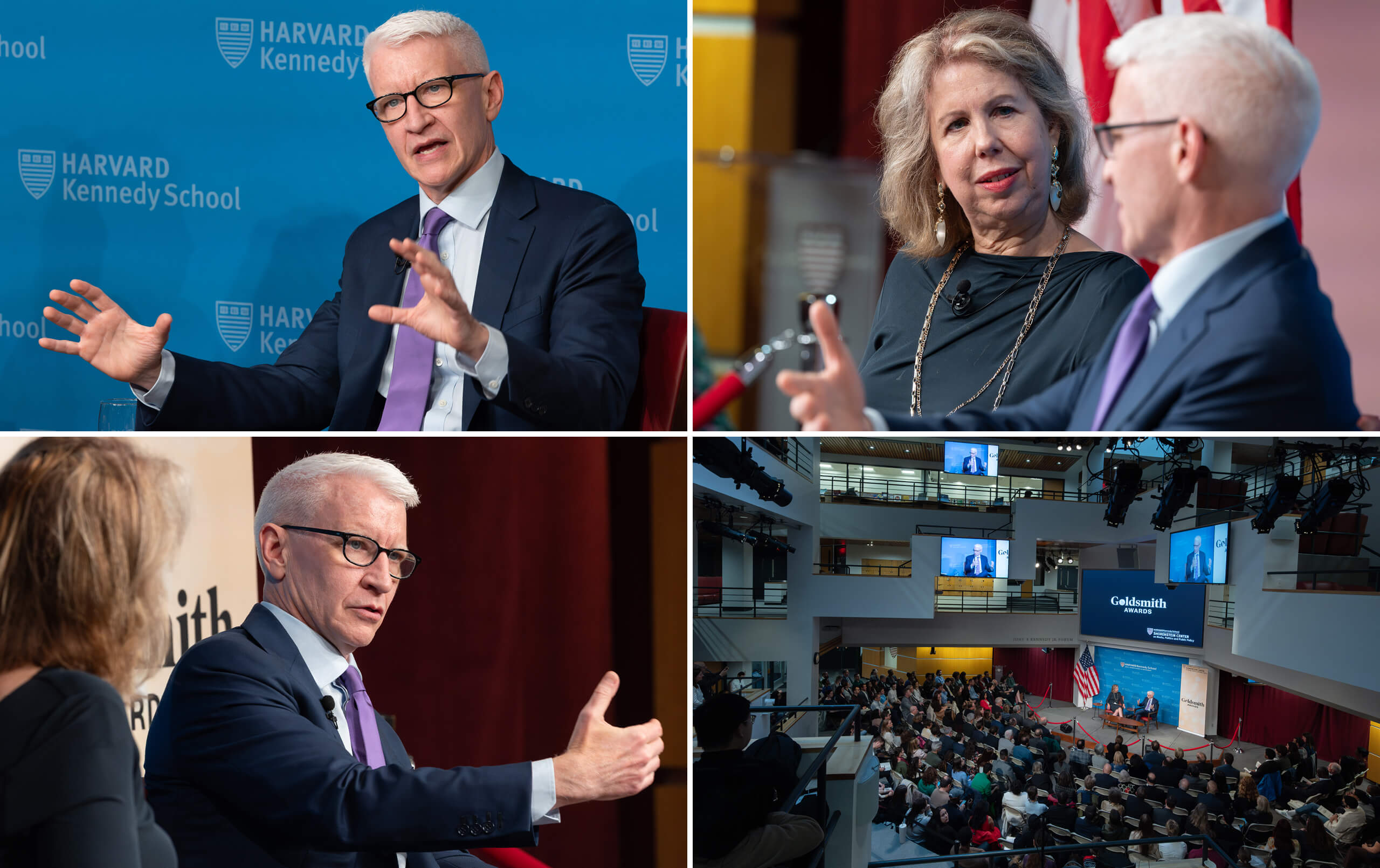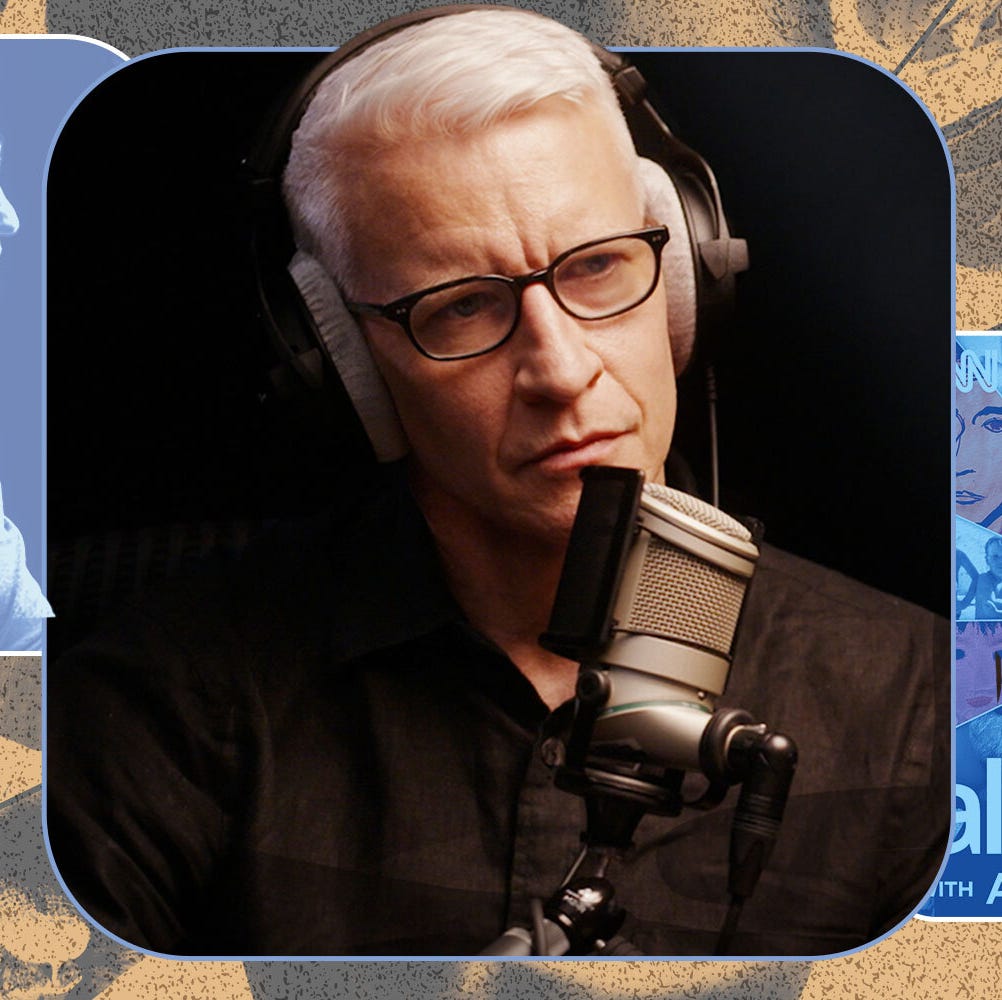Anderson Cooper Talks Shifting Media Landscape, TikTok, and How His Podcast Helped Him Cope with Grief

In a recent engaging event at the Shorenstein Center, part of the esteemed Harvard Kennedy School, Anderson Cooper was honored with the prestigious Goldsmith Career Award for Excellence in Journalism. During a thought-provoking fireside chat moderated by Nancy Gibbs, the center’s director, Cooper delved into the evolving media landscape, focusing particularly on the impact of corporate ownership and the increasing prevalence of alternative information platforms like TikTok and podcasts. This discussion offered a glimpse into Cooper’s insights on the current state of journalism and how these modern platforms are reshaping storytelling.

Corporate Ownership and Its Influence on Journalism
Cooper articulated his concerns surrounding the significant changes within journalism stemming from corporate directives. He observed that news outlets have increasingly become profit-driven entities. This shift, he argues, has compromised journalistic integrity and made these organizations susceptible to external pressures. As he expressed his worries over the manipulation of media during a time rife with political division, the implications for democracy and public trust were evident. Cooper’s reflections serve as a clarion call for the industry to safeguard its ethical foundations amid commercial interests.

The Rise of Immediate Storytelling through New Media
One of the most compelling aspects of Cooper’s discussion was the evolution of storytelling platforms. He highlighted how social media and instant communication have transformed the way news is reported and consumed. The immediacy of tools such as Instagram allows journalists unprecedented opportunities to present stories as they unfold, often sharing experiences from the field in real time. This was particularly evident when Cooper covered recent events, such as the devastating wildfires in Los Angeles, where his use of social media illustrated the shift towards personalized storytelling. The audience gained insights not just from the news itself but from the emotional perspectives of the reporter, creating a deeper connection to the events being reported.

Finding Solace and Connection through “All There Is” Podcast
A significant portion of Cooper’s reflections centered around his podcast, “All There Is,” which explores profound themes of grief and loss. Following the personal tragedies of losing significant family members, Cooper used the podcast as a medium to confront his own feelings surrounding grief for the first time. He emphasized the therapeutic nature of sharing these experiences, allowing both himself and his listeners to engage in valuable conversations about loss. The responses from audiences have been overwhelming, with thousands of listeners sharing their own stories of grief, creating a sense of community and shared understanding.
Cooper’s podcast has become a vital outlet not only for his healing process but also for those grappling with their own struggles. By openly discussing grief, Cooper fosters a vital dialogue, helping others process their emotions and feel less isolated in their experiences. The lessons learned through these heartfelt conversations highlight the importance of acknowledging and understanding one’s own feelings related to loss, reinforcing the need for connection during difficult times.

Conclusion
The evening at the Shorenstein Center also featured awards for investigative and explanatory reporting, underscoring the ongoing commitment to uphold journalistic excellence, even amidst the challenges faced within the media environment today. As we navigate this evolving landscape, Cooper’s reflections on the power of new platforms and the importance of authentic storytelling remind us of journalism’s role in not just informing but connecting with humanity. As we adapt to these changes, engaging thoughtfully with the media is crucial for understanding our world and our experiences. Are you ready to explore more about media evolution and personal storytelling in journalism?






